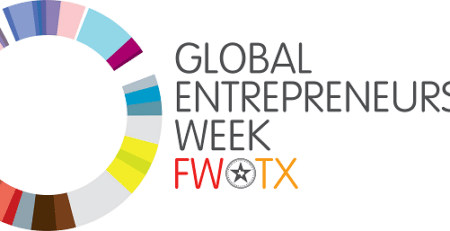Atlanta v. Fort Worth
From 2015-2020, 16 cities raised over one billion dollars in early-stage capital. Of those cities, nine have less than one million people, like Fort Worth. Removing the well-established startup cities from the equation, we are left with Seattle, Atlanta, Denver, Oakland, Washington, DC, and Nashville. However, these six cities have an average population of 604,706: roughly 350,000 less than the estimated population of Fort Worth in 2023. If Fort Worth is the 13th most populated US City, why is our entrepreneurial ecosystem not reflecting its size?
Last summer, we analyzed what makes Nashville a great entrepreneurial city, and the aspects of Music City that Fort Worth can adopt to boost our entrepreneurial ecosystem. Today, let us delve into what makes Atlanta, Georgia a startup hub and what the city of Fort Worth can learn from this southern city.
As of 2023, Atlanta’s population was estimated to be 490,270 while Fort Worth was listed as 961,885. While Fort Worth’s population is bigger, Atlanta is still considered a significantly better place to start a company. Inc. 5000 releases a list each year of the top 5000 fastest-growing companies in the country. Listed below are the top five from both cities and their overall ranking.
Atlanta
- SnapNurse #2
- RateForce #36
- Core Clinical Partners #40
- Stord #57
- PrizePicks #66
Average Rank Position: 40
Fort Worth
- TimelyMD #116
- PlayMaker #561
- Junxion Med Staffing #833
- Fort Capital #1004
- PROCO Roofing #1041
Average Rank Position: 711
These statistics, combined with Atlanta’s difference in population size, pose a bigger question: What factors influence entrepreneurs to build their companies in Atlanta and proceed to be more successful than Fort Worth?
College Central
Fort Worth has 13 colleges and many technical schools. However, Atlanta is home to 57 different universities and colleges, including prominent schools such as Emory University, Georgia Institute of Technology, and Georgia State University. – These schools not only create a superior talent pool but also have been known to foster entrepreneurship in the area. The Princeton Review ranks the Top 50 Entrepreneurship Programs for Universities, in which Georgia Institute of Technology is ranked #14 in the country and #1 in the South.
In places where talent is more numerous, hiring is cheaper, and employees can be onboarded faster. Atlanta has almost 150,000 college students, and tens of thousands of who will be looking for jobs each year. On the contrary, Fort Worth only has close to 35,000 students’ total. Atlanta is also the #2 city for millennials, so it is no surprise that the next generation that goes to school in the city would stay local. According to ADP Urban Planning Management, 77% of Atlanta graduates end up staying in the area to work. This aligns with the fact that 30% of Atlanta’s jobs originate from startups. Many entrepreneurs have found that starting a business in their home region allows them to trade on their local network ties, social support, and regional expertise.
Atlanta does not just have lots of colleges, they also they appeal to various demographics. The city is also home to several historically black colleges such as Morehouse and Spelman College, whose students are known to reinvest in the community post-graduation. Georgia’s capital has been named one of the best cities for Black entrepreneurs, as Atlanta has the highest percentage of black-owned businesses at 7.4%. This is more than double the national average. Atlanta is also the third-best metropolitan city for women entrepreneurs and a hub for minority entrepreneurs. Texas is ranked as a top location for minority entrepreneurs, but most of them build their businesses in cities other than Fort Worth, like Austin and Dallas.
Startup Hub
Not only does Atlanta foster a collegiate atmosphere, but it also has a vast amount of established startup incubator programs and coworking spaces. This includes Atlanta Tech Village, Metro Atlanta Chamber, Venture Atlanta, ATDC, Switchyards, Tech Square Labs, Ascend Atlanta, The Farm, GA Tech MBDA, Vaxa Factor, Strongbox West, Roam, Industrious, Opportunity Hub, and Hypepotamus– just to name a few. As mentioned previously, 30% of Atlanta’s jobs come from startups, such as Yik Yak which originated from Atlanta Tech Village. In 2006, Atlanta had a growing influx of technology startup companies that brought a new vibrance to the city’s tech ecosystem. Kabbage, Calendly, and Pindrop were founded and set the table for Atlanta startup financial services, business solutions, and internet security companies. Atlanta Tech Village houses over 600 startup companies, making it the largest tech entrepreneurial hub in the Southeast and the fourth largest in the country. Additionally, Venture Atlanta is one of the best places to hear from the newest startups in the city and the founders who have successfully built businesses, as well as investors who have helped these businesses grow. Georgia Tech’s Advanced Technology Development Center has launched more than 190 startups since 1980, 90% of which are successful after a five-year mark. The fact that Atlanta has such an abundance of startup accelerators and coworking spaces that are located all over the metro area for easy accessibility, they have created an unmatched arena of critical connections, business mentoring, and expertise.
Location
If you have not heard of the hit Netflix series Stranger Things, you have heard of The Walking Dead, The Hunger Games, and the Avengers. These productions all have one thing in common: Atlanta. This city is one of the fastest-growing film and TV production cities in the country, with more than 1,120 projects filmed in the area since 2007 and has had four of the top six domestic-grossing movies filmed here. Atlanta has experienced many economic advantages due to its prevalent film industry. Georgia’s film industry is fueled by thousands of small businesses such as landscaping, construction, hardware, catering, etc. Having such a big movie industry allows for all kinds of startups and local businesses to easily find customers and gain traction. From a number’s standpoint, the six Motion Picture Association of American companies spend an average of $693 million at more than 11,000 vendors. Having such a big film industry also leads to an influx of film tourism, which brings in a lot more revenue for businesses. Multiple travel websites have private Stranger Things and The Walking Dead tours listed as ‘likely to sell out,’ making Atlanta’s tourism population heavily dependent on the city’s entertainment industry. In 2019, Discover Atlanta found that Georgia’s tourism brought in 57 million visitors in 2019 and hosted a $16 billion hospitality industry- according to CBS News, Fort Worth only experiences a $3.1 billion economic impact from tourism in 2022.
It is no secret that Atlanta is the world’s busiest airport generating $82 billion in economic impact. The airport has created over 63,000 jobs, making it the largest job center in Georgia. Business travel is made convenient, and goods are transported more easily. Not only does it create jobs internally, but it helps businesses externally since the airport brings so much outside business to the area. Atlanta is said to be the twelfth most connected airport in the world with over 220 destinations. Additionally, MARTA, the city’s bus and railway system, is vital in attracting tech employees. With so much transportation, national and international business is brought right to Atlanta’s front door.
Lifestyle
Atlanta has a multitude of nicknames, ranging everywhere from Hot ‘Lanta to the Hollywood/Chicago/New York of the South- and all for valid reasons. Atlanta tends to be more temperate than Fort Worth, with a summer high of around 88 degrees as compared to Fort Worth’s 96. They also get more rain. For entrepreneurs that may have outdoor businesses or depend on good weather for increased sales, Atlanta is the better option. Furthermore, Atlanta houses six professional sports facilities, while Fort Worth’s teams are all affiliated with Dallas and are in Arlington. Not to mention, Atlanta hosted the Olympics in 1996, putting the city on the world’s stage. Of course, the more attractions a city holds, the more business the city gets. Atlanta also has a higher average salary than Fort Worth and a lower cost of living. In 2014, Business Facilities Magazine ranked Atlanta #1 for the city with the lowest cost of doing business. Atlanta also has the third largest concentration of Fortune 500 Companies in the country, including Coca-Cola, Delta, Home Depot, UPS, Chick-Fil-A, and Porsche. All these factors simply make Atlanta an appealing place to start a company or grow a business.
Setbacks & Exceptions
Like all places, Atlanta is not perfect and comes with some economic setbacks. For instance, while many Atlanta college graduates stay in the area to work, starting, or running a business in your home region can hinder outside investment and the ability to address new markets. There are also costs to doing business in a state’s capital. They are usually the most expensive, have an increased amount of trouble in finding locations and space, etc. This can lead entrepreneurs to want to start their businesses elsewhere. Lastly, since Atlanta experiences 3.5 times as many tourists as Fort Worth, there is a higher tourism tax to be paid.
Takeaways
From analyzing everything from airports to the number of colleges, Atlanta exceeds Fort Worth economically. They also place high priority in collaborative startup resources and investors that are willing to invest and reinvest. To decrease this gap between Fort Worth and Atlanta, here are some ways Fort Worth can strengthen its entrepreneurial ecosystem.
- Atlanta’s tourism creates many jobs in the city and brings outside business to existing owners. While creating new attractions or a film industry is not a simple task for Fort Worth to take part in, it can innovate the existing attractions to bring in increased tourism.
- Fort Worth could also work to invest more in the already existing local businesses to put them on tourist radar screens.
- Atlanta’s film industry and college life are its biggest economic success factors. Both are marketed to be beneficial business aspects.
- Atlanta is home to an abundance of entrepreneurial programs and accelerators. Fort Worth can continue to establish more of these programs in different areas across Fort Worth to attract people from all areas of town.
- Recently, Mayor Mattie Parker has designated film initiatives as a major legislative priority for Fort Worth to grow the city’s movie and television industry. Following through will create new jobs and the production team hiring local landscape, catering, and infrastructure companies.
Fort Worth is one of the fastest growing cities by population yet regarding its entrepreneurial ecosystem it is underdeveloped. While it is not plausible for Fort Worth to adopt all the things that make Atlanta’s economic ecosystem ideal, there are still some attainable implementations Fort Worth can use to strengthen the entrepreneurial community.
Sources:
- https://versus.com/en/atlanta-vs-fort-worth
- https://masseyandcompanycpa.com/is-atlanta-a-good-place-to-start-a-business/#:~:text=Atlanta%20is%20a%20great%20place,resources%20for%20new%20business%20owners.
- https://www.businessinsider.com/atlanta-is-a-great-place-to-start-a-business-2013-4
- https://www.inc.com/ryan-jenkins/why-atlanta-is-the-best-city-to-base-your-company.html
- https://www.incfile.com/blog/starting-business-atlanta-georgia
- https://www.sage.com/en-us/blog/why-atlanta-is-a-great-place-for-startups/
- https://www.realestatewitch.com/best-startup-cities-2022/
- https://apdurban.com/2018/07/where-are-recent-college-graduates-living-in-the-atlanta-metro-area/
- https://www.georgia.org/blog/top-10-ways-film-industry-benefits-georgia
- https://www.ajc.com/business/hartsfield-jackson-generates-billions-economic-activity-region/1yb862FcDLyUjmLkoa1gjP/
- https://startupsandplaces.com/startups-and-the-city/
- https://www.princetonreview.com/college-rankings?rankings=top-50-entrepreneurship-ugrad
- https://discoveratlanta.com/acvb/
- https://businesstravelerusa.com/news/find-out-which-are-the-worlds-most-connected-airports/#:~:text=And%20with%20330%20destinations%20linked,connected%20airport%20in%20the%20world.
- https://techcrunch.com/2021/05/02/how-did-atlanta-become-a-top-breeding-ground-for-billion-dollar-startups-in-the-southeast/

Faith Emmitte is a student intern for the Next department at the University of North Texas Health Science Center at Fort Worth. Faith will be a second-year student at Texas A&M University, pursuing a BBA in Marketing. Gig ‘Em! All thoughts and opinions are her own and in no way reflect the thoughts and opinions of HSC.



